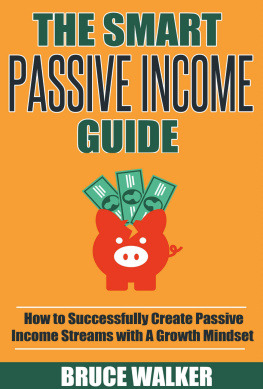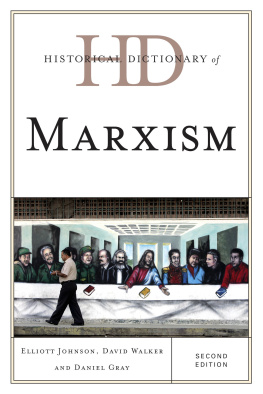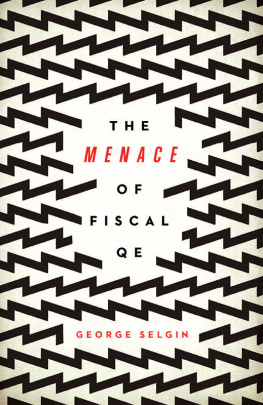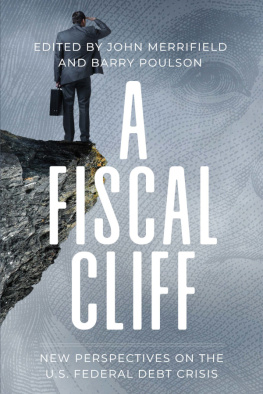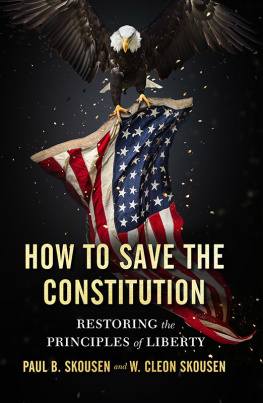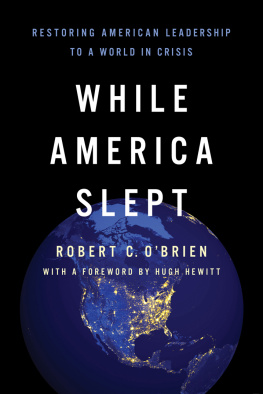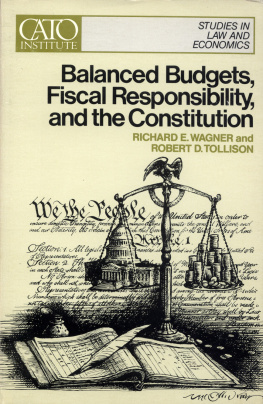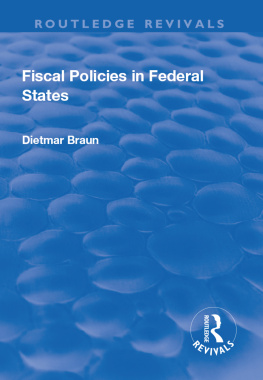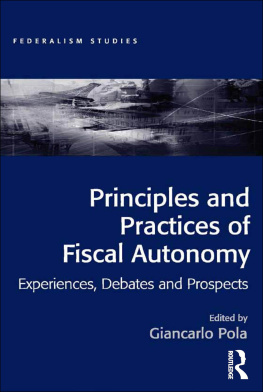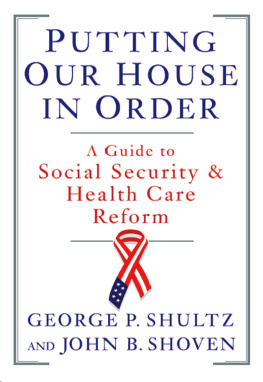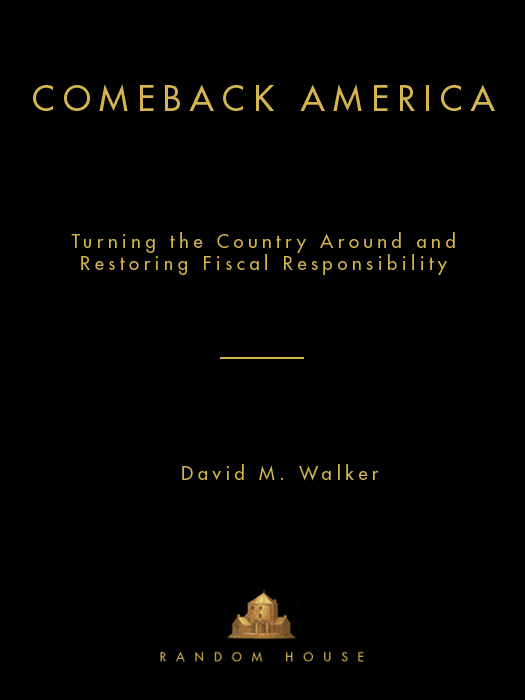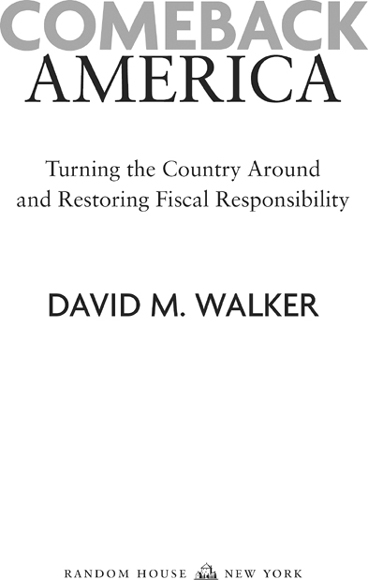Prologue
America is a great countrythe greatest, as far as Americans are concerned. But its future is threatened, and we same Americans are the threat. I am talking about our nations deteriorating financial condition, perpetrated by all of us, and especially by the government that represents us. It is easy to ignore this national decline. Even in these hard times, we see relative prosperity and unparalleled power all around us. But the danger is there even if we fail to acknowledge it. The American way of life will go downhill, steadily and inexorably, unless we do something about our growing fiscal imbalanceand do it soon.
I think you already realize that we are in a lot of trouble. After all, you have just picked up a book on the fiscal crisis by a certified public accountant and the governments former top auditor. If you find yourself concerned about how our nation is spending money it doesnt have, and spending it unwisely, then you have the right instinct. You should be worried. And this book might make you even more worried. But it will also show you a way out of the huge hole our elected officials have dug us into.
We have run deficits over the course of our history for a variety of reasons, from paying for wars, to fighting the Great Depression, to stimulating the economy in times of recession. But in the past thirty years, America and many Americans have become addicted to debt and to conspicuous consumption. As the baby-boom generation gets older and the growth of our workforce slows, we will pay more for Social Security, Medicare, and other programs that already dominate our budget. And we will find it harder and harder to pay for this spending. Its like having a credit card. At first, you pay off most or all of the balance. But as you continue to spend, the balance grows, and so does the interest on that balance. Before long youre struggling just to pay the interest, and you have less money available for everything else. As weve seen all too often over the past few years, this pattern leads to bankruptcy.
We live in a great and resilient nation. For all of our problems, the United States remains a global superpower and a beacon of liberty for people around the world. We have much to be proud of and thankful for. But I am here to tell you that if we dont find a way to get spending under control, we will put our nations economy and international standing at risk and bequeath to our children a world of severely diminished opportunities. But Im also here to tell you that its not too late, and thats what inspired me to write this book. I didnt call it Comeback America for nothing. We can make tough choices to restore fiscal sanity and stage a comeback from the recent financial crisis that has knocked us down. More important, we can come back to our basic principles and values, including thrift, personal responsibility, saving, and our stewardship obligation to shape a future for the next generation that is better than our past.
It will take a lot of hard work. In the pages that follow, I will tell you how we can take that spending machine off autopilot and redirect it to provide the services our nation needs at a price we can afford. That is going to involve dramatically rethinking our social programs, reforming our tax system and other spending programs, changing the way our government operates, and reforming our political system. And all this will happen only if We the People use the power of our democracy to force change from our elected officials.
Who am I to be sounding off? I spent fifteen years in Washington, working during four presidential administrations (Reagan, Bush 41, Clinton, and Bush 43). All my jobs involved working with top elected and appointed officials while also collaborating with a range of highly educated and dedicated civil servantsand all of them gave me a scary education in how our political system has failed to guard our nations financial health.
I watched the Reagan revolution from my position as assistant secretary of labor for pension and welfare benefits. President Reagan cut taxes and increased defense spending simultaneously, which added billions to the governments budget deficit. Of course, theres an argument to be made that Reagans defense buildup gave the Soviet Union a decisive push into oblivion, winning the Cold War without firing a shot. That in turn allowed us to cut defense spending (measured as a percentage of the national economy) and to enjoy a peace dividend of growth and creativity throughout our economy.
When we came down from that high induced by peace and lower taxes, however, we saw that the economic growth Reagan stimulated did not make up for the tax revenue we lost. As a consequence, our deficits were growing out of control.
I served under Reagans successor, Bush 41, as one of two public trustees for the Social Security and Medicare systems. That job gave me a lot of insight into our money-draining social programs, which Ill share with you later. It also gave me a lifelong respect for our first President Bush, who had the courage to break a campaign promiseRead my lips: No new taxeswhen he saw our deficits rising to the danger level. That decision probably cost him reelection, but it was the right decision for America. He also imposed tough budget controls to constrain spending and the expansion of government.
Let me also tip my hat to Ross Perot, the Texas businessman who ran for president in 1992 and 1996. Perot was the only national candidate in my memory who faced the American people with charts and graphs to pound home the point that the politicians in Washington were driving America into bankruptcy with their loose-spending ways. He made fighting the deficit sexy, at least for a while. He also showed that you dont have to win to make a big difference.
Perot made it extremely hard for the man who defeated him, Bill Clinton, to be anything less than fiscally responsible. I give President Clinton and his Treasury secretary, Bob Rubin, a lot of credit. They pushed through continuation of the statutory budget controls first put in place by Bush 41. Statutory means that by law Congress could not create new spending programs, among other things, without ensuring that they were adequately funded. Clinton set a good example for fiscal responsibility during his administration. He did not cut taxes, even though he had promised to do so for the middle class. He did not expand entitlement programs or move to increase social spending; in fact, he saved money through his welfare reforms.
Clinton also was very lucky. He was blessed with a strong economy powered by the high-tech boom. His tax and spending discipline, combined with high growth, boosted federal revenues to their highest level (as a percentage of the economy) in history. In 2000, as he prepared to turn over the White House to Bush 43, the U.S. government reported its first true budget surplus in more than thirty years.
My higher education in these issues began in 1998, when Clinton nominated me to serve a fifteen-year term as the seventh comptroller general of the United States and CEO of what was then called the General Accounting Office. That agency was responsible for auditing the federal governments consolidated financial statements and for making sure Washington was accountable to the people who pay the bills. (Six years into my term, we pushed through an act of Congress, signed by President Bush, that, among other things, changed the agencys name to the Government Accountability Office, or GAO.)


